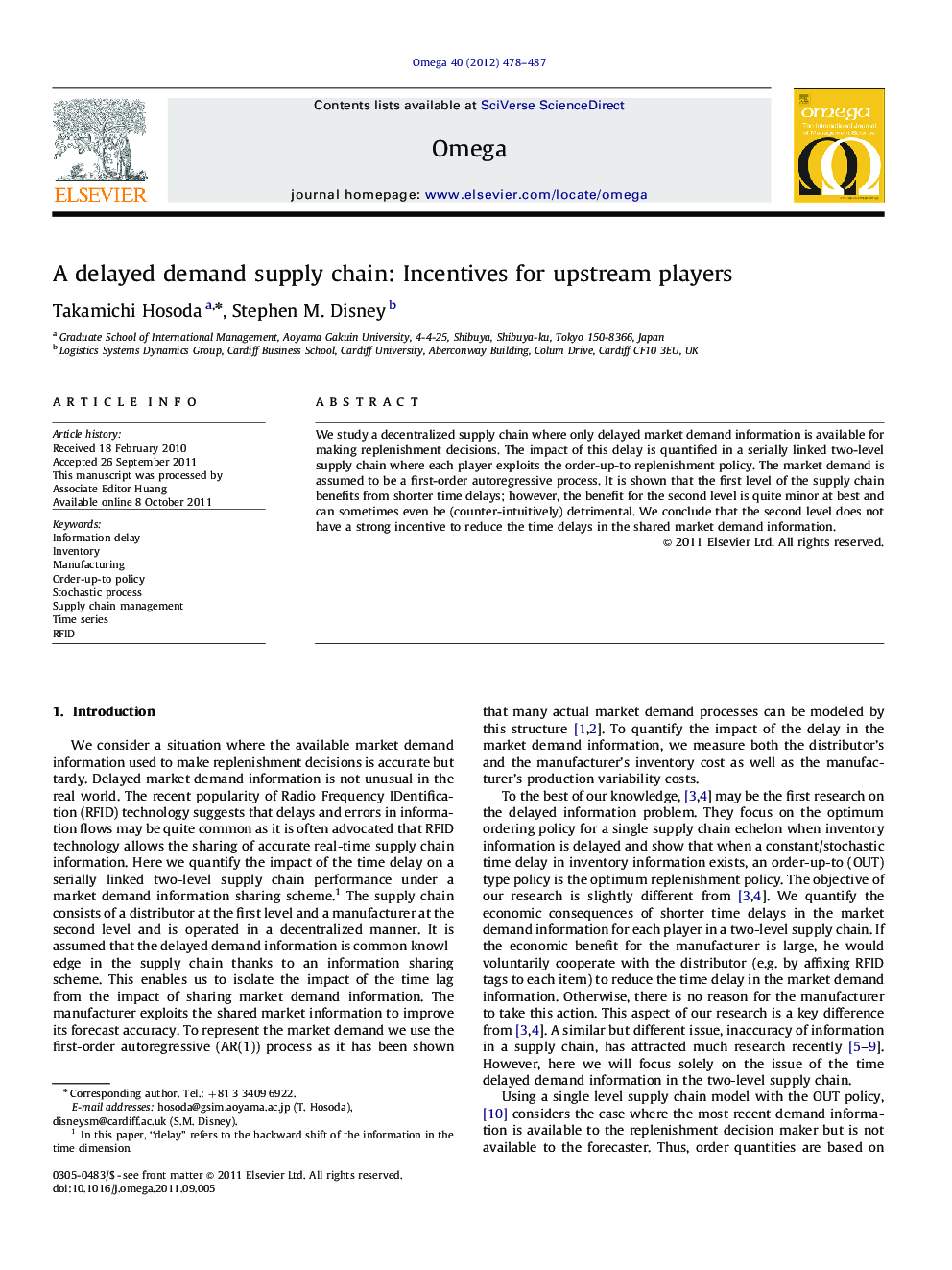| Article ID | Journal | Published Year | Pages | File Type |
|---|---|---|---|---|
| 1032867 | Omega | 2012 | 10 Pages |
We study a decentralized supply chain where only delayed market demand information is available for making replenishment decisions. The impact of this delay is quantified in a serially linked two-level supply chain where each player exploits the order-up-to replenishment policy. The market demand is assumed to be a first-order autoregressive process. It is shown that the first level of the supply chain benefits from shorter time delays; however, the benefit for the second level is quite minor at best and can sometimes even be (counter-intuitively) detrimental. We conclude that the second level does not have a strong incentive to reduce the time delays in the shared market demand information.
► We study a decentralized supply chain where only delayed market demand information is available. ► The impact of the delay is quantified in a serially linked two-level supply chain model. ► It is shown that the first level of the supply chain benefits from shorter time delays. ► However, the benefit for the second level is quite minor at best. ► We conclude that the second level does not have a strong incentive to reduce the time delays.
